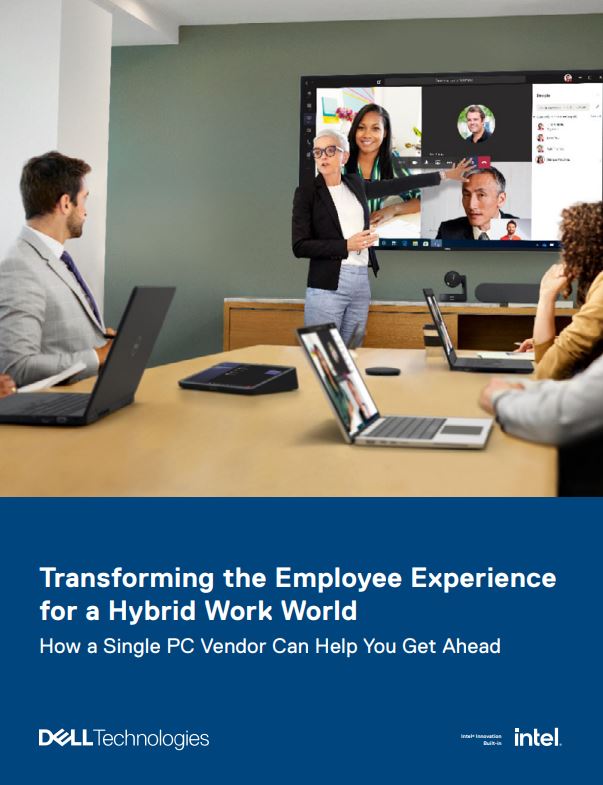Microsoft reportedly gives US workers unlimited time off
The change is set to begin on 16 January and follows other companies like Oracle and Salesforce


Microsoft is giving workers in the US unlimited time off, joining other tech giants in introducing the rare employee benefit.
Employees were made aware of the change to their paid time off when Kathleen Hogan, the tech giant’s chief people officer, sent them a memo on 11 January, according to The Verge. The change will apply to US employees, although it won’t apply to hourly workers.
The change, dubbed 'Discretionary Time Off' by the tech giant, will begin on 16 January and will also apply to new employees.
Additionally, the company will give employees ten corporate holidays, as well as sick leave, leaves of absence, and mental health time off.
Employees who haven’t used up all their holiday days will get a one-time payment in April.
“How, when, and where we do our jobs has dramatically changed,” said Hogan. “And as we’ve transformed, modernising our vacation policy to a more flexible model was a natural next step.”
It’s unclear whether this change will be made available to employees outside of the US in the future, although the tech giant said staff outside the US will keep their current holiday benefits due to different laws in other countries. It also said federal and state wage and hour laws make it difficult to offer unlimited time off to hourly workers.
Get the ITPro daily newsletter
Sign up today and you will receive a free copy of our Future Focus 2025 report - the leading guidance on AI, cybersecurity and other IT challenges as per 700+ senior executives
“Beginning January 16, 2023, Microsoft is modernising our vacation policy to a more flexible model and transitioning to Discretionary Time Off (DTO)," a Microsoft spokesperson told IT Pro. "How, when, and where employees do their jobs has dramatically changed and DTO aligns with more flexible ways of working.”
The spokesperson added that the initiative doesn't apply to the UK.
Microsoft joins companies like Oracle, LinkedIn, and Salesforce which also offer unlimited time off for staff. In May 2022, Microsoft also almost doubled its budget for employee salary increases. The company was aiming to retain staff and help employees cope with inflation. However, the move was only set to affect early to mid-career workers.
"Organisations who have instituted unlimited PTO approaches have found that organisational fairness and perceptions of trust in the organisation can be negatively impacted," Augustus Vickery, senior principal at Gartner HR Practice told IT Pro. "Employees know that PTO cannot really be ‘unlimited’, and the ability to take PTO is instead dependent on a range of factors to do with their job, workload, team culture and manager.
"Removing the set allowance of PTO days can result in employees taking less time off overall and increase discrepancies between employees in the PTO they are able to take," said Vickery.
50% of workers in the US would prefer to have unlimited time off compared to earning a higher salary, according to a survey of 2,000 workers by Fortune. In March 2022, only 9% of workers in the US had access to the employee benefit.
RELATED RESOURCE

Transforming the employee experience for a hybrid work world
How a single PC vendor can help you get ahead
In 2019, Hiring Lab found that job postings advertising unlimited holiday time rose 178% between 2015 to 2019, from 450 postings per million to 1,300 postings per million. Tech roles, like data scientists or software engineers, are also six-to-eight times more likely to be offered this benefit than other jobs.
Nearly three in four employees feel positive about unlimited paid time off, with 82.1% of those who already enjoyed the benefits feeling positive about it, according to research from Joblist from March 2022.
However, in the US, in the year before the research was published, employees took an average of 11 paid days off work, one more day than what’s considered to be the minimum vacation time of two weeks in the country.
Zach Marzouk is a former ITPro, CloudPro, and ChannelPro staff writer, covering topics like security, privacy, worker rights, and startups, primarily in the Asia Pacific and the US regions. Zach joined ITPro in 2017 where he was introduced to the world of B2B technology as a junior staff writer, before he returned to Argentina in 2018, working in communications and as a copywriter. In 2021, he made his way back to ITPro as a staff writer during the pandemic, before joining the world of freelance in 2022.
-
 Asus ZenScreen Fold OLED MQ17QH review
Asus ZenScreen Fold OLED MQ17QH reviewReviews A stunning foldable 17.3in OLED display – but it's too expensive to be anything more than a thrilling tech demo
By Sasha Muller
-
 How the UK MoJ achieved secure networks for prisons and offices with Palo Alto Networks
How the UK MoJ achieved secure networks for prisons and offices with Palo Alto NetworksCase study Adopting zero trust is a necessity when your own users are trying to launch cyber attacks
By Rory Bathgate
-
 IT professionals aren’t budging on flexible work demands – and more than half say they’ll quit if employers don’t meet expectations
IT professionals aren’t budging on flexible work demands – and more than half say they’ll quit if employers don’t meet expectationsNews Analysis from Randstad shows 40% of UK-based IT pros have quit over a lack of flexible work options, while 31% of workers globally have done the same.
By Ross Kelly
-
 'The tide seems to be turning towards office attendance': 64% of hybrid business leaders want staff back in the office – but many worry that enforcing RTO mandates will drive employees away
'The tide seems to be turning towards office attendance': 64% of hybrid business leaders want staff back in the office – but many worry that enforcing RTO mandates will drive employees awayAnalysis Many UK business leaders want their staff back in the office more frequently, but they’re scared to implement return to office (RTO) mandates in fear of worker revolts.
By George Fitzmaurice
-
 Employees are dead set on flexible working arrangements – three quarters would turn down a role that didn't offer hybrid options as work-life balance becomes more important than pay
Employees are dead set on flexible working arrangements – three quarters would turn down a role that didn't offer hybrid options as work-life balance becomes more important than payNews New research shows workers are increasingly demanding flexible working arrangements from employers.
By Emma Woollacott
-
 Nearly half of tech workers are seeking new roles – declining employee benefits and reduced flexible working options have staff looking elsewhere
Nearly half of tech workers are seeking new roles – declining employee benefits and reduced flexible working options have staff looking elsewhereNews While salaries are rising for tech workers, other benefits are in decline, leading to a fall in job satisfaction
By Emma Woollacott
-
 Untethered: How CIOs and CISOs are paving the way for the new hybrid workforce
Untethered: How CIOs and CISOs are paving the way for the new hybrid workforceWhitepaper Effective techniques to transition from exposed legacy infrastructure to an effective zero trust strategy
By ITPro
-
 Unified endpoint management and security in a work-from-anywhere world
Unified endpoint management and security in a work-from-anywhere worldWhitepaper Learn how to converge endpoint management and security processes and systems to drive efficiency and reduce risk
By ITPro
-
 Why flexible working is critical to ensure talent retention
Why flexible working is critical to ensure talent retentionAdvertorial The changing face of flexible working will be the focal point of a webinar hosted by the Achievers Workforce Institute on July 12
By ITPro
-
 Hybrid work means we’re burning out harder and faster than ever
Hybrid work means we’re burning out harder and faster than everIn-depth Technology has fueled an always-on culture that’s turbocharged a new breed of burnout, but technology can also come to the rescue
By Sandra Vogel